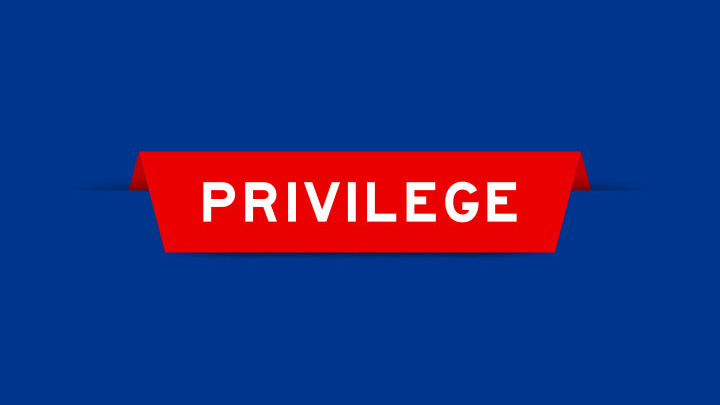On 17 April 2023 the European Commission (the “EC”) published Regulation (EU) 2023/822 extending the duration of Motor Vehicle Block Exemption Regulation (EU) No 2010/461 (MVBER) for a further five years, until 31 May 2028, along with the updated Supplementary Guidelines on vertical restraints in agreements for the sale and repair of motor vehicles and for the distribution of spare parts for motor vehicles (2023/C 133 I/01).
By way of background, in July 2022 the EC launched a stakeholder consultation and a call for evidence on the draft Regulation prolonging the MVBER for five years and draft Communication amending the Supplementary Guidelines.
As advised in our Newsletter published on 1 August 2022, the EC has focused on updating the General Verticals Block Exemption Regulation (EU) (VBER 2022/720), left Reg. 461/2010 unchanged (other than extending its duration) and only issued Amendments to the Commission Notice “Supplementary guidelines on vertical restraints in agreements for the sale and repair of motor vehicles and for the distribution of spare parts”. The new Supplementary Guidelines state that independent operators should now have access to vehicle-generated data as essential inputs for repair and maintenance services. Apart from these amendments in the Supplementary Guidelines, the EC’s approach to market definition and independent repairers’ access to authorized repairer networks has remained unchanged.
I. What stays the same?
A. The criterion of the 40% threshold for quantitative selective distribution
The EC has retained the 40% threshold for quantitative selective distribution. Point 56 of the old Supplementary Guidelines which states that “quantitative selective distribution will generally satisfy the conditions laid down in Article 101 (3) of TFEU if the parties’ shares do not exceed 40%” remains.
B. Market Definition: Has the Commission’s position changed at all?
As presented in detail in our previous newsletter, the EC’s positions regarding market definition in the automotive sector remains unchanged despite the changing landscape of the automotive market. Specifically, the relevant parts of the previous Supplementary Guidelines (Points 13, 15 and 57) concerning the bifurcation of the markets into a “primary” market relating to the distribution of new motor vehicles (primary market) and an “after-market” relating to the spare parts and repair and maintenance services(after-market) remain unchanged. It is recalled that the EC acknowledges that market definition may differ in circumstances where consumers or businesses take after-market costs seriously into consideration when purchasing a motor vehicle, such as trucks and busses, in which case there is a “system” market, which includes motor vehicles and spare parts and technical support (footnote 1 of Point 57). It is disappointing that the EC did not address the changing automotive landscape, the advent of electromobility or the changing ownership patterns in favour of long-term lease vehicles, subscription schemes etc.
Therefore, the notion of a “brand specific” aftermarket, will continue to cause uncertainty and raise concerns an lead to qualitative selective distribution after-market networks.
C. Access to authorized repairer networks
As a consequence of the “brand specific” theory, the position of the EC as regards entry to authorized repairer networks has also not been revisited. The EC insists that as the after-market is still dominated by the brands and hence all firms that meet manufacturers’ specified quality criteria should enjoy access to authorized repair networks. Refusals to allow entry will continue to generate legal disputes. The EC chose not to respond to market developments, such as electrification, changing consumer preferences and new mobility patterns. Overall, the motor vehicle industry is currently undergoing multi-faceted and complex transformations, which put the entire sector under pressure. The current flux in the motor vehicle sector should suffice to advocate in favour of manufacturers enjoying an increased degree of flexibility to adapt the authorized after-market networks to changing market circumstances.
II. What’s new: Access to vehicle-generated data and technical information
The extension of the MVBER’s term allowed at least a new look at aspects of digitalization.
The EC has updated its Supplementary Guidelines for the motor vehicle sector, in particular to address the increasingly important issue of vehicle-generated data, which is now viewed as an input to which independent parties in the repair and maintenance sector must have access:
- By using the term “inputs” the EC generally refers to technical information, tools, training and vehicle-generated data for repair and maintenance. According to the EC, the existing standards and the relevant requirements of Regulation (EU) 858/2018 should be taken into account.
- Technical information that qualifies as RMI (Repair and Maintenance Information) extends to information required to work on certain systems with a view to introduce or restore settings recommended by the supplier, as well as to activation codes needed to install certain parts. The EC provides a list of examples of technical information (Point 66) which indicatively are: software, fault codes and other parameters, together with updates, which are required to work on electronic control units, advanced driver-assistance systems and battery management systems for electric vehicles with a view to introducing or restoring settings recommended by the supplier, motor vehicle identification numbers or any other motor vehicle identification methods etc. According to the EC, the relevant requirements and lists of items set out in Regulation (EU) 2018/858 should also be used as a guide to what the EC views as technical information for the purposes of applying Article 101 of the TFEU.
- The EC now provides a test for deciding whether an agreement to withhold certain inputs will result in the agreement at issue being caught by Article 101 of the TFEU. The decisive factors are a) whether the input is essential for repair and maintenance, b) whether the input is made available on a non-discriminatory basis to authorized repairers and independent operators alike, and c) whether the input in question is ultimately used for the repair and maintenance of motor vehicles, or rather for another purpose, such as for the manufacturing of spare parts or tools. Insofar as the withholding of input is to be justified on security grounds, the principle of proportionality must be observed. Therefore, if a vehicle manufacturer considers withholding access to RMI based on security grounds, it needs to assess whether withholding access is appropriate (or whether less restrictive measures would address its security related concern). In particular, the EC notes that a qualitative selective distribution agreement concluded with authorized repairers/distributors is likely to fall within Article 101 (1) of the TFEU, if the parties in the agreement fail to provide the independent operators with a particular item, which is an essential input for the provision of repair and maintenance services.
- Last but not least, the Supplementary Guidelines contain an explicit warning in Point 68a to the effect that the unilateral withholding of certain input, including the withholding of vehicle-generated data, may constitute abuse under Article 102 of the TFEU. This means that if a vehicle manufacturer withholds RMI (incl. vehicle data qualifying as RMI) from independent operators and also does not put that RMI at the disposal of its authorised network, such conduct may amount to an abuse of dominance under Article 102 TFEU. In that regard, the EC cites the relevant European jurisprudence concerning cases on refusals to supply, without further analyzing this approach. However, it should be noted that EC’s approach is related to the amendments to its existing Guidance from 2008 in its enforcement priorities regarding the application of Article 102 TFEU to abusive exclusionary conduct by dominant undertakings in relation to cases of “constructive refusal to supply”, in which input does no longer need to be indispensable. In light of the existing European case-law on refusal to supply and the reform of the existing Guidance from 2008, it remains to be seen how cases of withholding essential inputs for the repair and maintenance of motor vehicles will be assessed.
Newsletter drafted by Mariangela Papageorgiou, Associate; Nikolas Papadopoulos, Associate; and Catherine Kouvaris, Junior Associate, in collaboration with Gregory Pelecanos, Senior Partner. The newsletter is not intended as legal advice. For advice on this and other competition law matters please contact Gregory Pelecanos at gregory.pelecanos@balpel.gr




